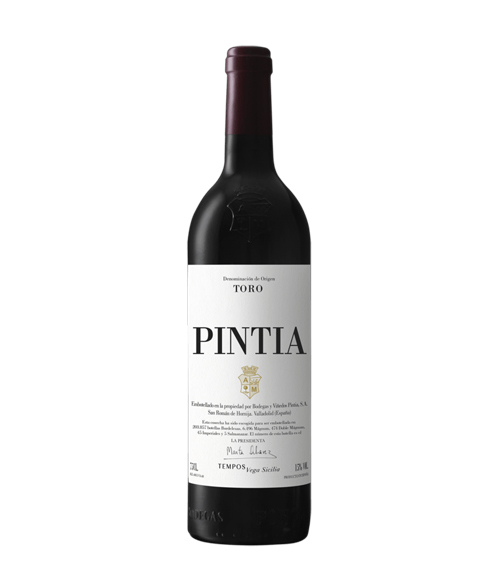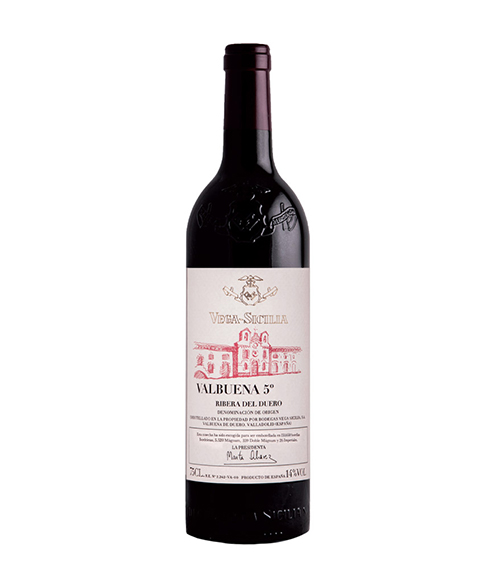

The why, the what and the how of...
Tempos Vega Sicilia
Grapes were first grown in the area we know today as Ribera del Duero since Roman times. One of the Roman’s requirements for settlement in any area was access to clean water and the means to transport goods. These requirements were delivered by the Duero valley and the river running through it. In 1864, Eloy Lecanda founded the winery that is today Spain’s most famous wine. The estate suffered a period of turbulence in the years following it’s founding with real stability being achieved only when the Álvarez family considered adding winemaking to their already extensive portfolio of diversified businesses. The Vega Sicilia we know today began in 1982, when billionaire industrialist David Álvarez acquired the winery and the vineyards.
Since 1982, David Álvarez, along with his son, Pablo, who was chosen among the children to take control of the winery, has endeavoured to marry modern and innovative techniques with traditional winemaking processes. The vineyards and their vines, which are almost half a century old, receive very careful attention with relevant parcels replanted in rotation.
The Tempos Vega Sicilia winery is located in Valbuena de Duero, in the province of Valladolid, on an estate made up of a fertile plain that follows the course of the river. The river is the northern boundary of the property which spans 1,000 hectares and the woods at the southern end, which stand on the slopes leading to the plain. The estate is planted to 250 hectares of vines; of which 80% are Tinto Fino (a clone of Tempranillo) and the rest divided between Cabernet Sauvignon, Merlot and Malbec. The mixture of alluvial clay and limestone, apart from providing a fertile base, also imparts a depth and complexity to the wines.
Yields in the vineyard are kept as low as is practically possible, and the defining quality of the winemaking process is the quality of raw material and attention to detail. With all the vineyards at an elevation of around 800m above sea level the harvest is quite late and most commonly starts about the middle of October each year. Only the best grapes are used, and a complex series of racking takes place between large casks and smaller barriques of varying usages. Tempos Vega Sicilia introduced a full cooperage workshop in 1987, which today supplies all of the winery’s needs in terms of barrels made of American oak.
Both the Vega-Sicilia Único vintage and the multi-vintage Único Reserva Especial consist predominantly of Tinto Fino at around 95%, blended with Cabernet Sauvignon. Único is not produced every year – only when the quality is at a certain, excruciatingly high level. The former is their flagship wine, released on a vintage basis. The wine usually spends six years in a succession of large and small American and French oak barrels, before at least three additional years aging in bottle. With broad shoulders and a powerful structure, this is a wine with considerable aging potential. The Único Reserva Especial is all about consistency. It blends three vintages together to create a wine of uniformity. Traditionally, a Reserva Especial offers the best representation of the wines of the bodega.
From their younger vines comes the Valbuena 5°, a vintage red. Valbuena is a pure expression of a red at Tempos Vega Sicilia, with an aging of five years from barrel to bottle, which gives it its name, Valbuena 5° (“5th”). It is also predominantly made up of Tinto Fino, blended with a very small percentage of Merlot. The wine presents a spicy, complex nose with a softer, more approachable palate with amazing length and complexity.
There is no secret recipe to the making of Vega Sicilia’s magnificent wines. It all comes down to a combination of high-quality grapes and meticulous attention to detail in the cellar – all executed with great expertise and passion. Tempos Vega Sicilia is one of the world’s great fine wine producers and is acknowledged as Spain’s most iconic wine.

















